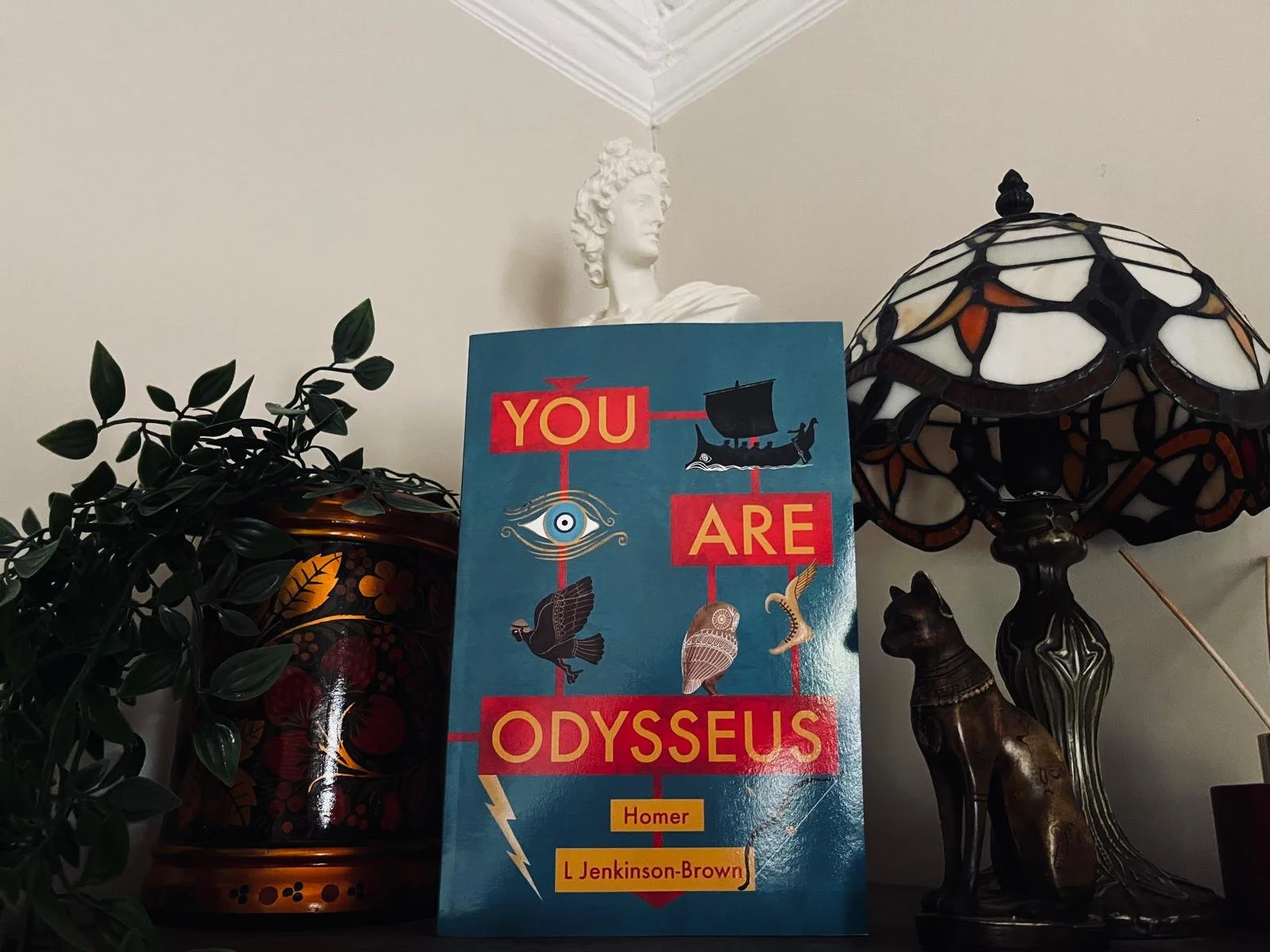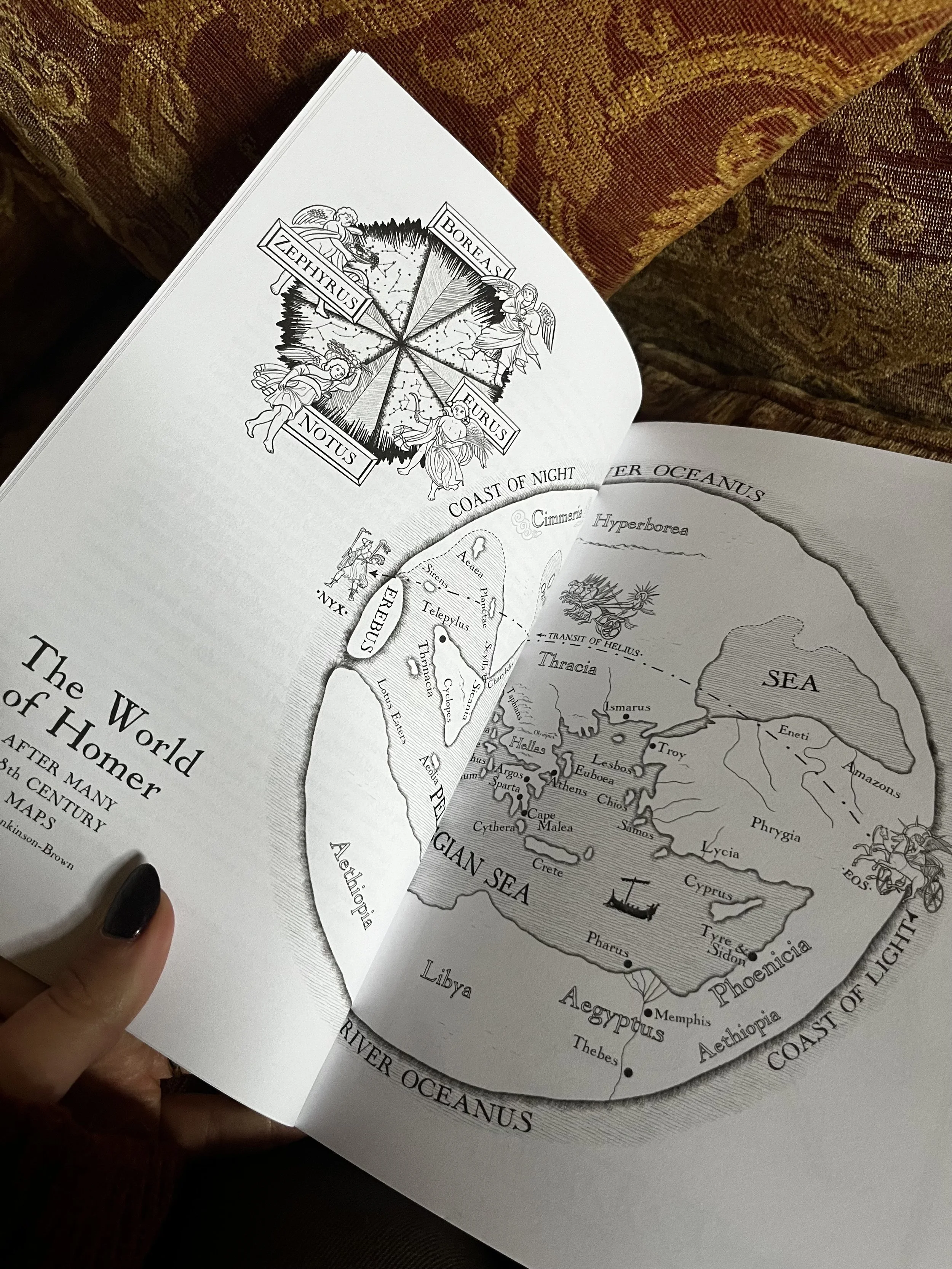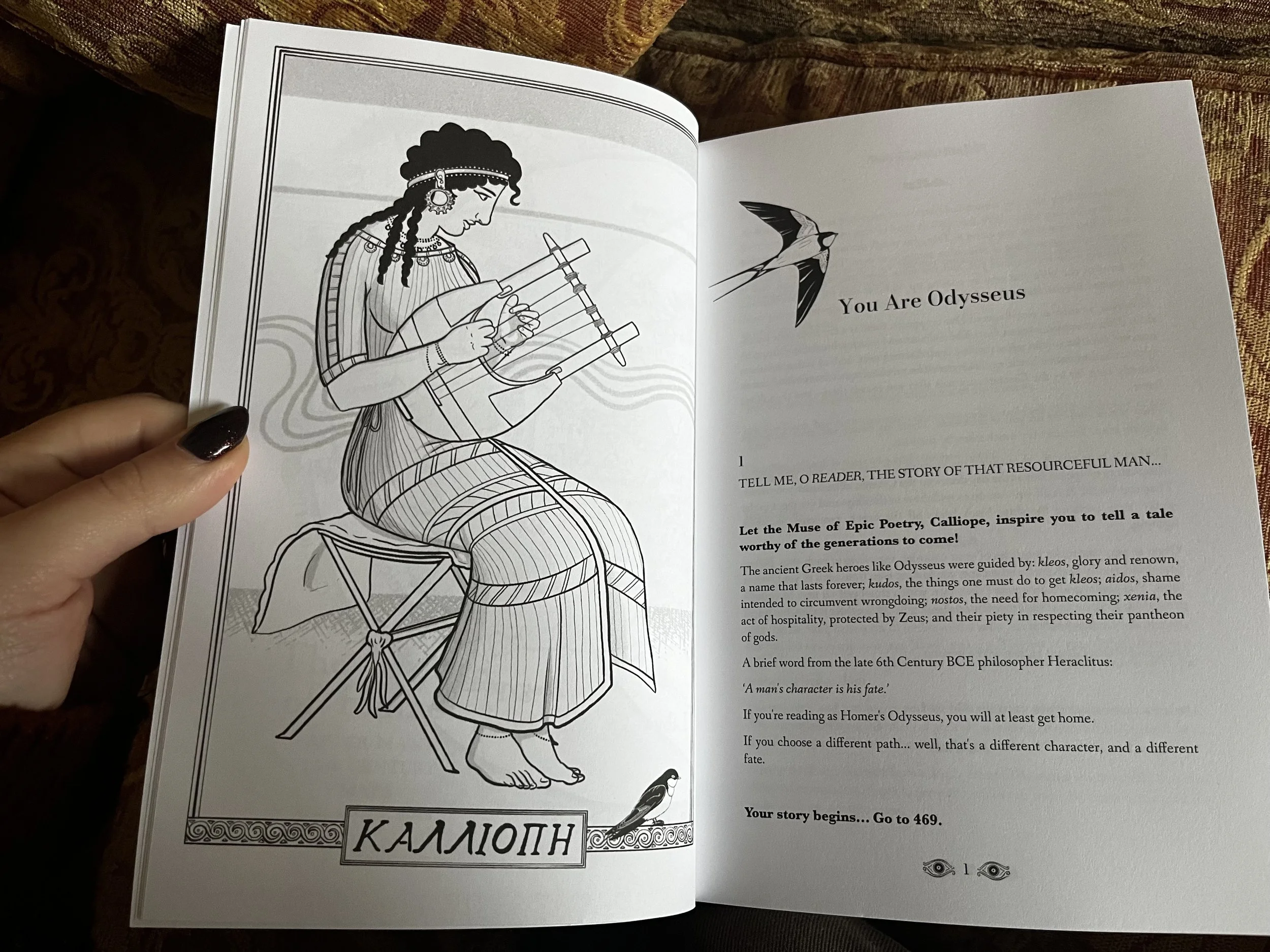Book Review: You Are Odysseus
The Odyssey has always held a special place in my heart as my first real encounter with Greek mythology. Although the version I read was admittedly one intended for children – we were being taught this in primary school after all – I’ll never forget my excitement at hearing about how the great Odysseus overcame every obstacle put in his path and returned to Ithaca.
The original epic is far more nuanced than that of course, with many of Odysseus’ wanderings having tragic consequences for him and his crew, and the protagonist himself emerging as a far less likeable hero than modern readers have come to expect. Indeed, it’s tempting to wonder how these events might have unfolded if he had chosen differently. Well now you can see these ‘What ifs…?’ play out in L. Jenkinson-Brown’s brand-new book, You Are Odysseus.
As the title would suggest, this choose-your-own-adventure novel has readers take on the role of Odysseus during his epic journey. Every route begins with the Greek army who, having concluded their sacking of Troy, are preparing to commence the return voyages to their various kingdoms. Your Odysseus must decide between leaving with Menelaus or remaining with Agamemnon to give more offerings to Athena. Even though neither option stops you achieving a positive ending, both are indicative of Odysseus’ complex nature. The version which joins Menelaus, for example, may have the potential to be a man who places greater value on camaraderie than on furthering his own reputation, while the one which remains with Agamemnon may prove unable to set aside his need for kleos and choose what is best for his crew. From there, a myriad of different routes is opened up to you, all depending on the choices you make as you proceed. While there are ways to replicate Odysseus’ journey as it appears in the original Homer, there are also plenty of opportunities to go off on side quests or approach certain events differently. All this to say that there isn’t a “right” way to play, just as there isn’t a right way to interpret Odysseus; the character and his story are what you make of them.
Given the sheer variety of routes and endings available to the reader, I really appreciated the new moments and adventures that Jenkinson-Brown was able to craft and seamlessly weave into the text. One of my favourite additions was the afternoon that Odysseus and Telemachus spent together, an incredibly moving insight into the latter’s childhood and an exploration of the impact that decades of separation has had on father and son. In the original epic they have little trouble coming together to defend their home and birthright from the suitors, but it’s nice to see Odysseus’ guilt and sadness at having become a stranger to his son given more space in the narrative. Another aspect that I equally enjoyed were the various bad endings you could get, such as the short play that directly criticises Odysseus’ poor choices, or his remaining to live as a court jester of sorts in Phaeacia. Having these is especially effective, as they will undoubtedly spur readers on to see if they can avoid these negative outcomes or, perhaps, stumble into more of them.
You Are Odysseus was a real pleasure to play and read through – not unlike a lovely session of Dungeons and Dragons – and I can’t congratulate L Jenkinson-Brown enough on her dedication to creating a perfect companion piece to The Odyssey that is as entertaining as it is educational. Every passage is brimming with love for both the original text and the culture that shaped it, and I just know that it will spark so many lively conversations about Odysseus and the wider world of Greek mythology.




